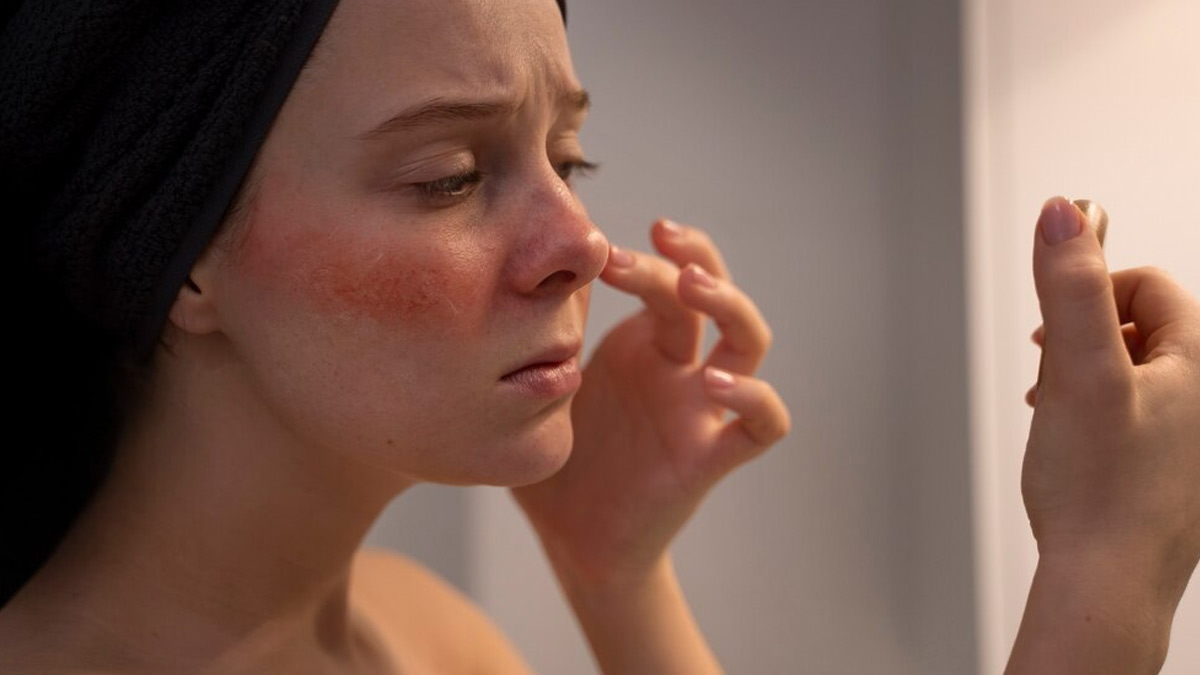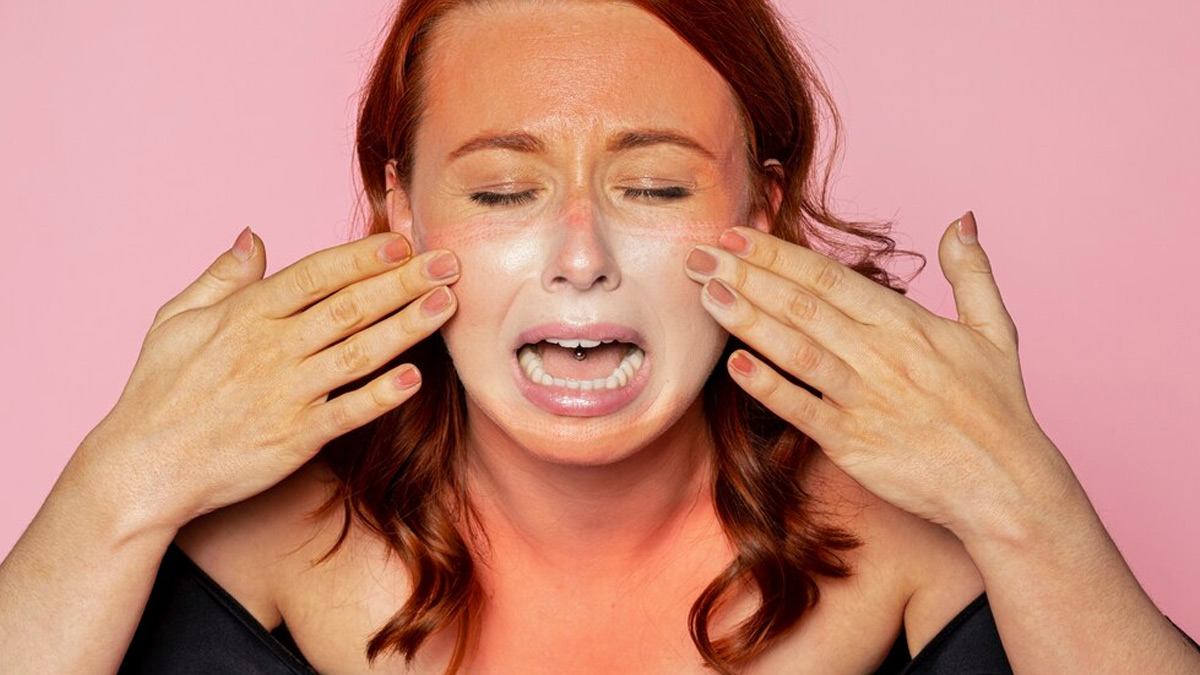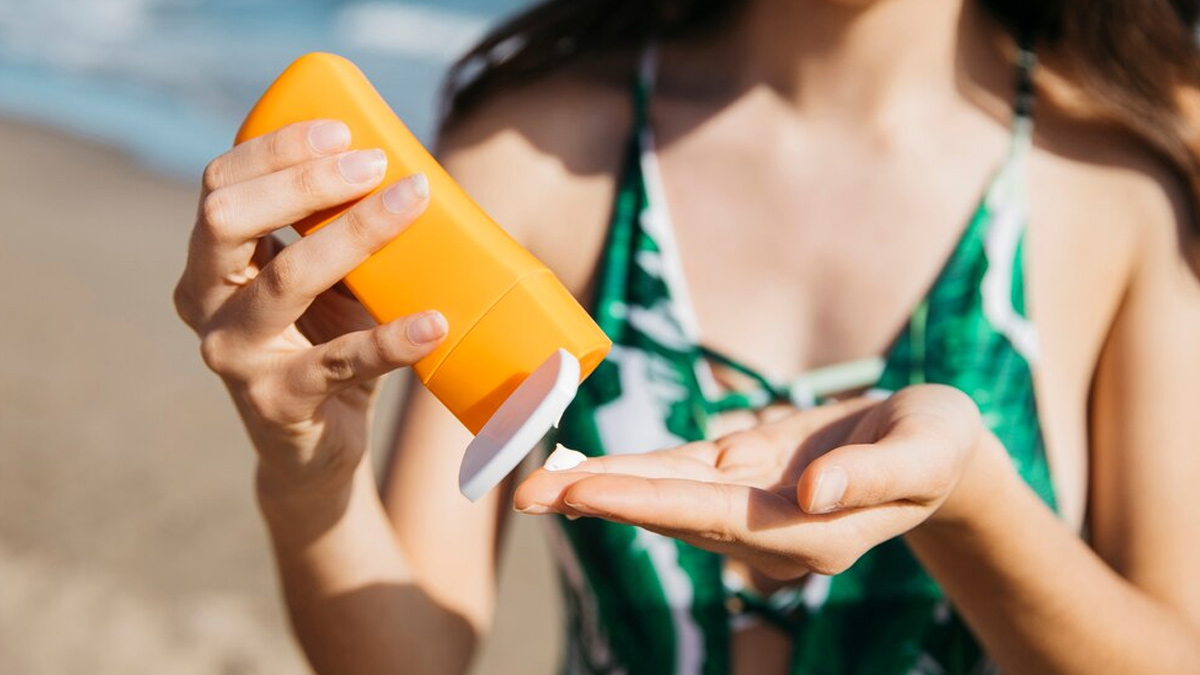
We all know what a sunburn feels and looks like. It is mostly common for people who spend a lot of time outdoors to expose themselves to the sun during peak sunlight hours. People with fair skin and those with a history of sunburn are also more prone to the skin condition. Experts recommend wearing sun protective clothing and accessories to protect against it and also advise applying sunscreens with good SPF to ward off skin damage.
Table of Content:-
But while sunburn is often manageable and harmless, do you know what sun poisoning is and the kind of effects it can have on your skin? Let's find out...
Also Read: Sunburn During Summer: How To Naturally Take Care Of It?
Sunburn Vs. Sun Poisoning

The ongoing heatwave has taken a massive toll on people, especially those living in the northern Indian region.
In an interaction with the OnlyMyHealth team, Dr Swapna Priya, Consultant Dermatologist, CARE Hospitals, Hitech City, Hyderabad, says, “Soaring temperatures and harsh sunlight make it difficult for individuals who have a higher sensitivity to the sun.”
Two of the common skin issues experienced due to exposure to ultraviolet (UV) radiation are sunburn and sun poisoning.
According to StatPearls Publishing, over a third of the population experiences sunburn each year, the severity of which depends primarily on the duration and intensity of exposure to UV rays.
Dr Priya says sunburn occurs when skin is damaged due to exposure to UV radiation.
The Skin Foundation describes the condition as red, swollen, and painful marks on the skin, which can range from mild to blistering.
"Sun poisoning is a more severe and more concerning level of sunburn. It can also be called an allergic reaction to sunlight, which requires prompt medical attention to mitigate the risks of both internal and external symptoms," Dr Priya notes.
Differences In Symptoms

Sunburn and sun poisoning are both caused by prolonged exposure to the sun. However, the two conditions differ in terms of severity and symptoms.
Signs and symptoms of sunburn include:
- Redness of the skin
- Skin that feels hot when touched
- Skin that itches, flakes, or peels
Signs and symptoms of sun poisoning include:
- High levels of skin inflammation
- Face or eyelid swelling
- Appearance of blisters
- Dehydration
- Running fever or chills
- Severe headache
- Nausea and vomiting
How To Manage Sunburn And Sun Poisoning

Here are some strategies to tackle both sunburn and sun poisoning:
- Invest in a good sunscreen with above 30 SPF; reapply every 3 hours.
- Cover your skin with protective clothing, especially when outdoors during peak afternoon.
- Try using hats, caps, scarves, shawls, or other headgear to protect your face.
- Opt for full sleeves or full-length pants that can cover the maximum parts of your body.
- Wear sunglasses to protect your eyes from harmful rays.
- Choose lightweight and natural fabrics like cotton that are more breathable.
- For individuals experiencing sunburn or sun poisoning, do not use hot water in showers; instead, opt for cold water and apply a cold compress in affected areas.
- Moisturise your skin with soothing lotions.
- Avoid oil- and petroleum-based lotions.
- Keep yourself hydrated and have a well-balanced diet that can help with recovery.
Conclusion
Sunburn and sun poisoning can both take a toll on your skin. In fact, both of these skin conditions can increase your risk of complications in the future. According to the Skin Foundation, sunburn or any kind of sun damage to the skin can lead to an increased risk of skin cancer. "Even if you are tan or your skin type is dark and your skin does not redden, the sun can cause cellular damage that can lead to cancer," the charity says. If you have experienced sunburn, it is important to manage the condition. However, it is even more crucial to protect yourself from sun damage by wearing breathable, full-length clothing while also applying good sunscreen.
Also watch this video
How we keep this article up to date:
We work with experts and keep a close eye on the latest in health and wellness. Whenever there is a new research or helpful information, we update our articles with accurate and useful advice.
Current Version